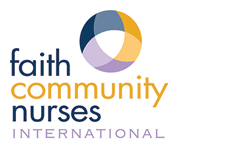Abstract
Faith Community Nursing (FCN) programs in the United States (U.S.) emerged in the 1980's; however, the intertwining of health promotion in religious institutions has been present for millennia. Today, challenges facing healthcare are prompting health care providers to find creative and cost-effective methods of providing care. Determining whether FCN positively impacts the health of individuals with limited access to healthcare services would encourage healthcare providers to collaborate with the specialty, reinforcing the benefit of their service. An integrative literature review was conducted to identify studies measuring the impact of FCN on the health outcomes of individuals with hypertension (Baig, Mangione, Sorrell-Thompson, & Miranda, 2009; Bangurah, Vardaman, & Cleveland, 2017; Cooper & Zimmerman, 2015; Cooper & Zimmerman, 2017; Whisenant, Cortes, & Hill, 2015), diabetes (Austin, Brennan-Jordan, Frenn, Kelman, Sheehan, & Scotti, 2013), older adults (King & Pappas-Rogich, 2011; Pappas-Rogich & King, 2014; Rydholm, Moone, Thornquist, Alexander, Gustafson, & Speece, 2008; Shillam, Orton, Waring, & Madsen, 2008), weight management (Kelley, 2018) and vulnerable populations (Baig et al., 2010; Bangurah, Vardaman, & Cleveland, 2018; Callaghan, 2016; Cooper & Zimmerman, 2015; Koenig, Nelson, Shaw, Saxena, & Cohen, 2016; Monay et al., 2010; Whisenant, Cortes, & Hill, 2014). The review of the literature supports the positive impact of FCN in the community for certain populations; however, the specialty needs to improve methods of evaluating outcomes and conduct further quantitative studies.
First Page
80
Included in
Alternative and Complementary Medicine Commons, Community Health and Preventive Medicine Commons, Other Nursing Commons, Public Health and Community Nursing Commons, Public Health Education and Promotion Commons
